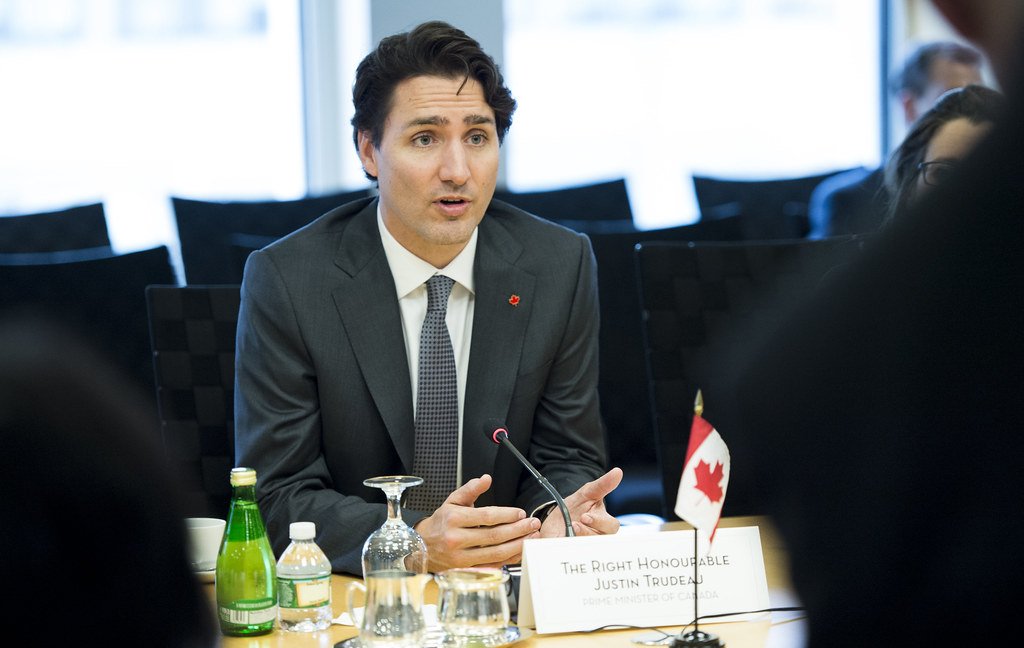Canada Implements National Vaccine Passport
Prime Minister Justin Trudeau announced in a televised press conference on October 21 that federal and regional officials had agreed on a standard document to display a person’s vaccination history (World Bank Photo Collection).
The Canadian government will begin to implement a standard electronic document for proving a person’s vaccination status, according to an announcement on October 21. Canadian Prime Minister Justin Trudeau told a press conference that officials in each of Canada’s 13 provinces and territories had agreed to implement a unified set of usability and security features to their existing vaccine passports that will make it easier for public health workers to verify that a person has received a COVID-19 vaccine. Federal regulations will require Canadian travelers to show the new vaccine passport in order to board airplanes beginning on November 30.
Until now, regional authorities issued different documents with different amounts of information, making it difficult to check the status of travelers from around the country. Under the new standards, all vaccine passports will include a mark of authenticity and a QR code to expedite the process of checking for vaccination. While many provinces already have vaccine passports that include these features, others, like British Columbia, will take some time to put the new federal requirements into practice. B.C. was among the first provinces to create vaccine passports, but now residents will likely have to keep two documents for in-province and out-of-province travel. “While it may be inconvenient to go through the process of downloading a federal version of the existing B.C. vaccination card, we recommend consumers do so once it becomes available in B.C., given it will eventually become standard and recognized in every province and territory, as well as by other countries,” said Walt Judas, the CEO of the Tourism Industry Association of B.C. Alberta, Manitoba, New Brunswick, and Prince Edward Island, which also have regional documents that do not comply with the federal standards.
Just as in other countries, some Canadians have resisted the requirement to show proof of vaccination to enter public spaces and businesses. In September, anti-vaccine protestors in Vancouver who opposed the B.C. vaccine passport surrounded a hospital and harassed healthcare workers. Now, even a government office has expressed skepticism about the necessity of such documents. The Office of the Privacy Commissioner, a federal agency that advocates for citizens’ right to privacy, issued a cautious statement that suggested that national vaccine passports could be a case of government overreach. “Vaccine passports may offer significant public health benefits, but they remain exceptional measures. They should only be imposed after careful consideration of privacy and other human rights principles,” the Office wrote on October 22.
Canada has been very successful in getting vaccines to its citizens. As of October 22, 83 percent of eligible citizens have been fully vaccinated against COVID-19. With the new vaccine passport, officials hope that they will be able to ease restrictions on travel and indoor dining in the coming months. Doug Ford, the Premier of Ontario, revealed a timeline on October 21 that would gradually lift all the province’s COVID-19 regulations, culminating with the end of its mask mandate in late March. Compared to the United States and Europe, Canada has kept cases of COVID-19 relatively low at fewer than 45,000 cases per million people since the beginning of the pandemic. The U.S. and United Kingdom have had 137,000 and 130,000 cases per million people, respectively.

